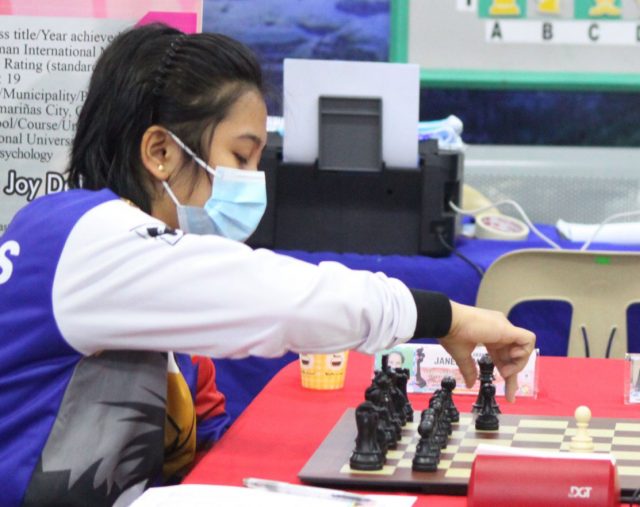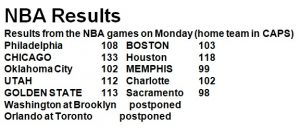Human-centered approach to work
(Last of a series)
Let me end this series of articles on the “Human-Centered Approach to Work” by reflecting on the content of a recently published book by Jamie Merisotis, president and CEO of Lumina Foundation, entitled Human Work in the Age of Smart Machines. He wrote that in this time of upheaval and social unrest, with increasing threats to global health (consider the COVID-19 pandemic), democratic institutions (consider the rise of totalitarian or authoritarian governments), and the world’s economies, we must rise to the challenge of workers being transformed — and often rendered obsolete — by automation and artificial intelligence. We must be able to work alongside smart machines, doing that which only humans can: thinking critically, reasoning ethically, interacting interpersonally, and serving others with empathy.
The main theme of this book brought me back to the time I was graduating from De La Salle High School on Taft Avenue and was deciding what course to take in college. Having decided to continue my education at the same college (La Salle was not yet a university), I considered the undergraduate offerings then of my alma mater. There were the usual majors in business, such as accounting and business administration, as well as the offerings in the college of engineering such as chemical, mechanical and civil engineering. Fortunately, two towering figures in the liberal arts — Dr. Ariston Estrada and Dr. Waldo Perfecto — convinced a small group of high school graduates in 1954 to enroll in a newly crafted college curriculum called Liberal Arts-Commerce (LIA-COM) that combined a strong humanities program with a specialization in one of the fields of management, such as accounting, marketing, or finance. It was supposed to be a five-year program (as compared to the four-year purely commerce specialization). By overloading subjects over four years of the program, I was able to finish the course ahead of time. I never regretted making that decision of taking the LIA-COM. I am now ready for the new occupations of human work enumerated by Jamie Merisotis in his book under the chapter “The Work Only Humans Can Do.”
According to Merisotis, there are four kinds of occupations that are emerging that embody human work — the work of the future. The first category is that of “Helpers.” These are the people in occupations involving deep personal interaction with other people. Since the service sector accounts for a larger component of GDP in developed economies, these jobs are proliferating, as many industries have transformed to become focused on customers. The most notable example is in the financial services (I am glad I never considered myself an accountant even if I majored in accounting in the “COM” portion of LIA-COM). As technology (especially automation) has taken over most of the repetitive tasks that professionals such as bankers and accountants used to do, their jobs have become focused on understanding client needs and responding to them. As retail banking has become the key driver of profits in that industry, recognition of the importance of customer service has become widespread. One survey found the top investment priority of banking executives, even in emerging markets like the Philippines, was to enhance customer service, with implementing new technology far behind. The same survey also reported that bank executives view talent as the primary constraint they face in pursuing their customer-centric business model.
The second category of human work that is emerging can be referred to as “Bridgers.” Workers in these occupations interact with others, perform technical tasks, and help run systems. Bridgers literally create connections — to other people, and to other forms of work. Sales managers, automotive repair managers, and many supervisors fall into this category. The vast field of Information Technology contains many of these jobs. No longer is an IT professional a “computer geek.” He must be a “bridger,” combining technical expertise with strong people skills such as communication and empathy in order to be effective. I see these qualities in the IT personnel in my own university. They have a deep understanding of the nature of each of the various disciplines of the component schools of our University (e.g., management, economics, political science, education, engineering, etc.) so that they can effectively cater to the needs for IT services of these schools and their respective professors. The term “bridgers” is truly appropriate for the type of work they do.
The third category has been labeled “Integrators.” These people are in occupations that integrate knowledge and skills from a range of fields and apply them in a highly personal way. Examples given are social workers and elementary school teachers. Social workers have to keep constantly abreast of knowledge in fields as diverse as psychology, economics, medicine, and nutrition. In addition, they must also understand the implications of emerging research and be able to integrate it into their practices. In fact, they themselves are field researchers— testing new approaches, innovating, and constantly seeking new ways to better meet the needs of their clients. All of their work is done within a social, cultural, and economic context, and under constraints of laws and regulations that also are constantly changing.
Finally, the fourth category comprises the “Creators.” These are people who possess highly technical skills and pure creativity. Many of these occupations involve the creative use of technology. For example, computer gaming is now a $135-billion global industry, and it is growing at the rate of 11% per year. Just the sales of one game — Red Dead Redemption II — totaled $725 million in its first three days off the market. Video game development employs more than 220,000 people in the United States, at an average salary of $97,000 annually. A study commissioned by the BPO-IT Industry Association of the Philippines identifies computer gaming as one of the knowledge-intensive industries that Filipino young people can excel in as AI and robotization increasingly make contact center agents redundant.
Reflecting on these insights from Mr. Merisotis’ book, I have the following recommendations to the human resource strategy that we have to follow in the coming years as we try to be at the forefront of Industrial Revolution 4.0, even if we have not completed the first three stages of the industrial revolution that started in England during the last decades of the 18th century. The very first thing we have to do in order to prepare Filipino workers for the age of smart machines is to increase the public budget we spend on education from the low of 3% prevailing to 6% which is the average among our peers in the Southeast Asian region. This larger amount should be mostly invested in improving the quality of public education so that our elementary and secondary school pupils can improve their performances in international tests in reading comprehension, arithmetic, and science. To attain this goal, we must increase significantly the salaries of our elementary school teachers who are “integrators” and must be able to teach many subjects to their pupils, being versatile enough to go from arithmetic to science to history to geography to social sciences, etc., etc., especially in the more remote areas of the country where there is a shortage of teaching personnel. The elementary school teacher should be a jack of all trades and a master of as many disciplines that are taught to students at the basic education level.
We must also pay handsomely teachers at the senior high level (Grades 11 and 12) because they are the ones who should make sure that a graduate of senior high school is already steeped in critical thinking, effective communication, inter-personal skills, and multi-disciplinary analysis by having been exposed to the liberal arts and the humanities. It must recalled that what we should offer in the last two years of high school in the K to 12 curriculum now in force are the academic subjects that used to be taught in the first two years of college when basic education was delivered in 10 years. We have to upgrade the quality of basic education to the extent that everyone who has completed the two years of senior high school must already have been exposed to the Great Books, philosophy, history, arts, and sciences: in a word, the liberal arts which prepare every person to live a fully human existence, independently of his specialization which he needs to earn a living.
If we are able to introduce these reforms in our educational system, we will prepare our present and future generations for what is truly human work that can never be replaced by machines. As Mr. Merisotis wrote in his book: “Human work doesn’t fit into the neat categories of the industrial age. Rather than mastering a single body of knowledge or set of technical skills, to do human work, people must develop a wide range of abilities and apply them to solving complex problems in dynamic settings… if a job can be defined by a single body of knowledge, no matter how arcane, or a single set of skills, no matter how specialized, there is a high likelihood artificial intelligence can do it.”
I am glad that I took the LIA-COM program instead of just specializing in accounting. I am sure that a robot will never make me redundant!
BERNARDO M. VILLEGAS has a Ph.D. in Economics from Harvard, is professor emeritus at the University of Asia and the Pacific, and a visiting professor at the IESE Business School in Barcelona, Spain. He was a member of the 1986 Constitutional Commission.
bernardo.villegas@uap.asia













